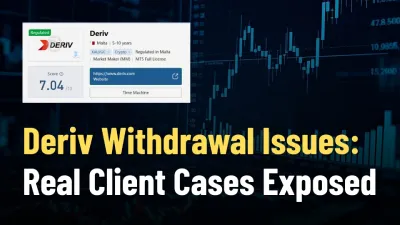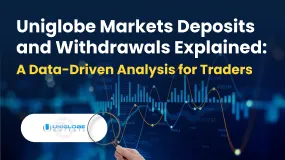简体中文
繁體中文
English
Pусский
日本語
ภาษาไทย
Tiếng Việt
Bahasa Indonesia
Español
हिन्दी
Filippiiniläinen
Français
Deutsch
Português
Türkçe
한국어
العربية
Dollar near 3-week low as Fed’s Powell less hawkish than feared
Abstract:The U.S. dollar languished near a three-week low to major peers on Thursday after Federal Reserve Chair Jerome Powell assuaged trader worries about continued aggressive monetary tightening.

The dollar index, which measures the greenback against six counterparts, slid overnight after the Fed raised the benchmark rate by an as-expected 75 basis points to bring it closer to neutral, while noting that although the labour market remains strong, other economic indicators have softened.
Powell said “another unusually large” rate increase could be appropriate at the Fed‘s next meeting, but said the central bank’s decisions would be data-dependent and it would not give forward guidance. He also said he didnt believe the economy was in recession, based on the strength of employment.
“The dollar lost a little bit of altitude because I think the market was bracing for the potential of Fed chair Powell to sound a little bit more hawkish,” said Rodrigo Catril, a senior FX strategist at National Australia Bank.
“The markets sort of focused on his comments around the fact that we are getting very close to neutral,” Catril said. “Theres potential now to slow down the pace of hikes, and the market likes that.”
The dollar index was slightly higher at 106.54 in early Asian trading after dropping 0.59% overnight. Below 106.1 would be the lowest since July 5.
The two-year Treasury yield, which is especially sensitive to policy expectations, sagged near its lowest level this week at 2.9878%, adding further weight on the dollar.
It remained about 23 basis points above the 10-year yield though, widely seen as signalling a looming downturn.
Whether the U.S. economy meets the definition of a technical recession by posting two straight quarters of contraction will be known later on Thursday with the release of GDP figures, which will be the markets next major focus.
Japans currency, which is extremely sensitive to U.S. yields, gained on Thursday. One dollar bought 136.325 yen, which was 0.2% less than Wednesday.
The euro slipped 0.08% to $1.0191, but following a 0.82% jump overnight.
Sterling was 0.09% lower at $1.2146, after rallying 1.06% on Wednesday.
Cryptocurrency bitcoin eased 0.58% to $22,836.57, giving up a bit of its more than 8% surge the previous session.

Disclaimer:
The views in this article only represent the author's personal views, and do not constitute investment advice on this platform. This platform does not guarantee the accuracy, completeness and timeliness of the information in the article, and will not be liable for any loss caused by the use of or reliance on the information in the article.
Read more

Check Yourself: The Costly Trading Habits Every Trader Must Fix
Are the trading habits you barely notice the very ones quietly destroying your profits, and could a single overlooked mistake be costing you far more than you realise?

Scandinavian Capital Markets Exposed: Traders Cry Foul Play Over Trade Manipulation & Fund Scams
Does Scandinavian Capital Markets stipulate heavy margin requirements to keep you out of positions? Have you been deceived by their price manipulation tactic? Have you lost all your investments as the broker did not have risk management in place? Were you persuaded to bet on too risky and scam-ridden instruments by the broker officials? These are some burning issues traders face here. In this Scandinavian Capital Markets review guide, we have discussed these issues. Read on to explore them.

Deriv Withdrawal Issues: Real Client Cases Exposed
Deriv exposed via client cases of withdrawal issues, 13‑month refund delays, severe slippage, and disabled accounts despite multiple “regulated” licenses.

Uniglobe Markets Deposits and Withdrawals Explained: A Data-Driven Analysis for Traders
For any experienced trader, the integrity of a broker isn't just measured in pips and spreads; it's fundamentally defined by the reliability and transparency of its financial operations. The ability to deposit and, more importantly, withdraw capital seamlessly is the bedrock of trust between a trader and their brokerage. When this process is fraught with delays, ambiguity, or outright failure, it undermines the entire trading relationship. This in-depth analysis focuses on Uniglobe Markets, a broker that has been operational for 5-10 years and presents itself as a world-class trading partner. We will move beyond the marketing claims to scrutinize the realities of its funding mechanisms. By examining available data on Uniglobe Markets deposits and withdrawals, we aim to provide a clear, evidence-based picture for traders evaluating this broker for long-term engagement. Our investigation will be anchored primarily in verified records and user exposure reports to explain the Uniglobe Mar
WikiFX Broker
Latest News
The 350 Per Cent Promise That Cost Her RM604,000
"Just 9 More Lots": Inside the Endless Withdrawal Loop at Grand Capital
GCash Rolls Out Virtual US Account to Cut Forex Fees for Filipinos
Garanti BBVA Securities Exposed: Traders Report Unfair Charges & Poor Customer Service
Private payroll losses accelerated in the past four weeks, ADP reports
INZO Commission Fees and Spreads Breakdown: A 2025 Data-Driven Analysis for Traders
Gratitude Beyond Borders: WikiFX Thank You This Thanksgiving
Core wholesale prices rose less than expected in September; retail sales gain
Consumer confidence hits lowest point since April as job worries grow
MH Markets Commission Fees and Spreads Analysis: A Data-Driven Breakdown for Traders
Currency Calculator



